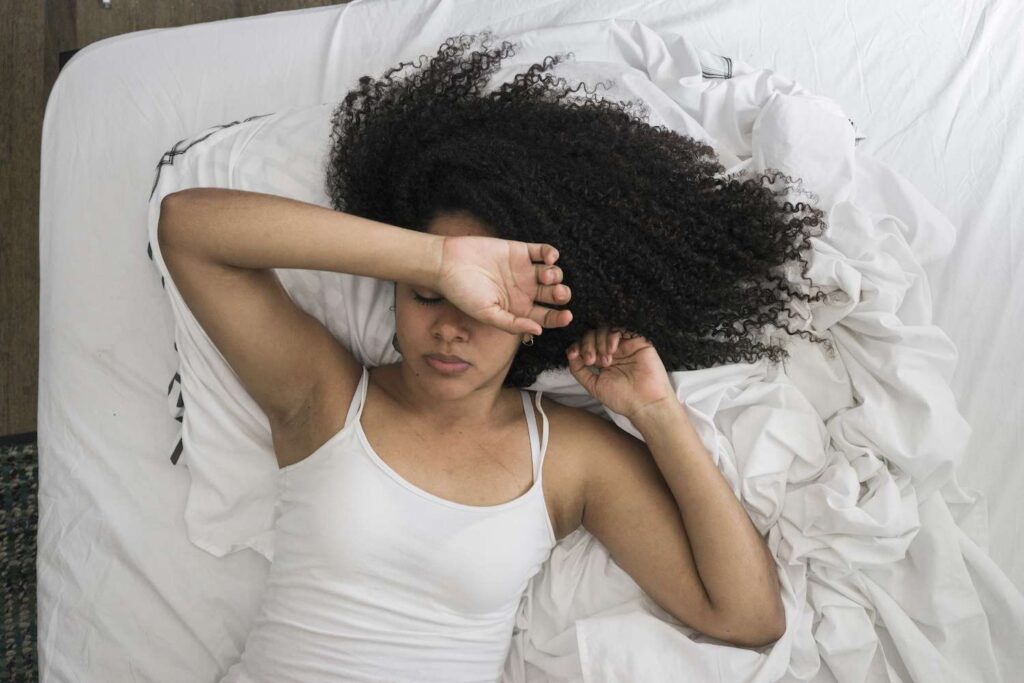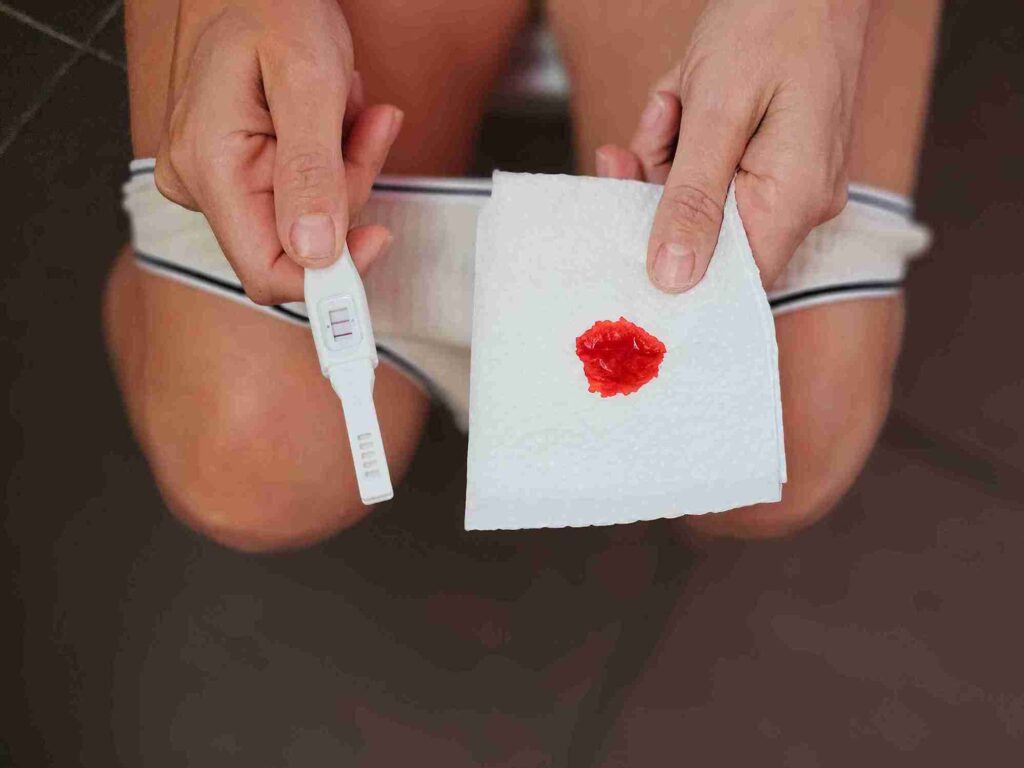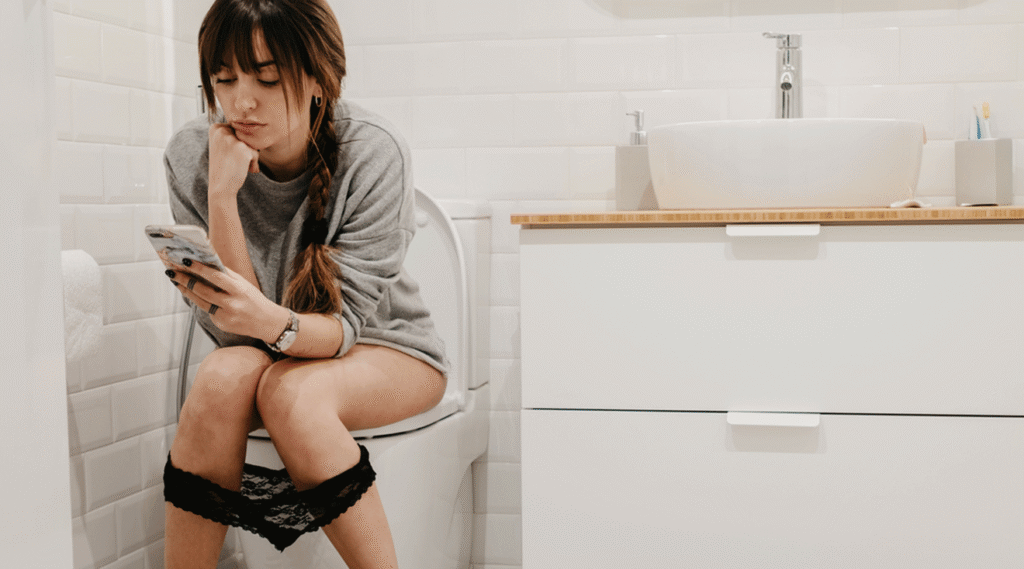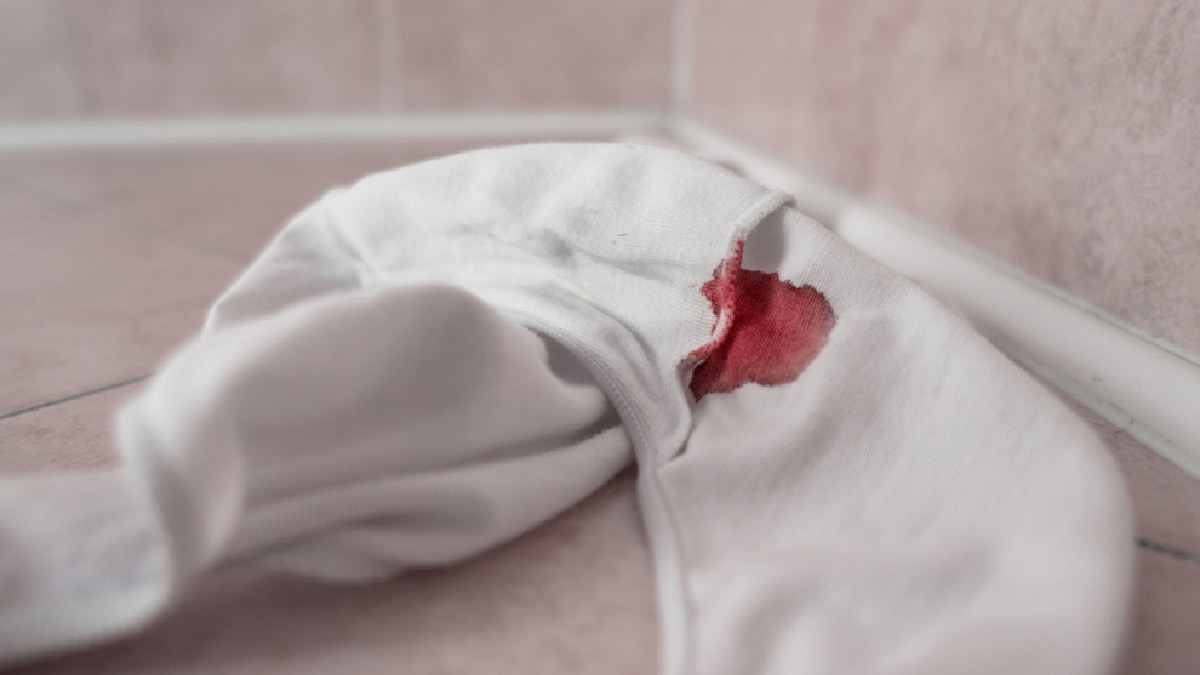Spotting after unprotected sex can be confusing and even a little worrying for many people. It refers to light bleeding that happens outside your normal menstrual period, and it can appear as pink, red, or brown discharge. While it’s often harmless, spotting can also be your body’s way of signaling a hormonal change, irritation, or in some cases, an underlying health condition.
In this blog, we’ll discuss the common reasons why spotting may occur after unprotected sex, when it’s normal, and when it’s important to seek medical advice.
What Does Spotting After Sex Mean?

Spotting after sex means noticing light bleeding or small spots of blood from the vagina following intercourse. It’s different from a regular period and often appears as pink, red, or brown discharge. This bleeding can happen immediately after sex or within a few hours. In many cases, it’s not a cause for alarm and may result from friction during intercourse, hormonal changes, or sensitivity of the cervix and vaginal tissues.
Recommended: What Does Brown Spotting Before Period Mean?
However, spotting can sometimes be a sign of an underlying condition that needs attention. Infections, cervical inflammation, polyps, or even early pregnancy can cause light bleeding after sex. If spotting becomes frequent, is accompanied by pain, an unusual odor, or changes in discharge, it’s important to see a healthcare professional for proper evaluation and treatment.
Common Reasons for Spotting After Unprotected Sex
There are several possible explanations for spotting after unprotected sex. Some are harmless and temporary, while others may require medical attention. Below are the most common reasons explained in detail:
1. Ovulation Spotting
During ovulation, your body experiences a surge in hormones, particularly estrogen. This hormonal shift can cause slight bleeding as the egg is released from the ovary. Ovulation spotting usually happens in the middle of your cycle, about two weeks before your next period, and may appear as light pink or brown discharge.
2. Cervical Irritation
The cervix is sensitive, and friction during sex, especially without enough lubrication, can irritate or slightly tear its delicate tissues, leading to light bleeding. This type of spotting is usually harmless and stops on its own after a short time. Using proper lubrication and gentle activity can help prevent it.
3. Implantation Bleeding
If fertilization has occurred, spotting could be an early sign of pregnancy known as implantation bleeding. This happens when the fertilized egg attaches to the lining of the uterus, typically 6 to 12 days after ovulation. Implantation bleeding is light, short-lasting, and often pink or brown rather than bright red.
Recommended: Is Light Spotting Normal for Perimenopause?
4. Hormonal Imbalance
Stress, emergency contraception, or certain medical conditions can cause hormonal fluctuations that affect your menstrual cycle. These imbalances may lead to unexpected spotting after unprotected sex or between periods. Maintaining a healthy lifestyle and managing stress can help keep your hormones stable.
5. Infections (STIs or Vaginal Infections)
Sexually transmitted infections like chlamydia, gonorrhea, or trichomoniasis can cause inflammation of the cervix or vagina, leading to post-sex bleeding. Similarly, non-STI infections such as bacterial vaginosis or yeast infections may irritate the vaginal lining. If spotting is accompanied by pain, itching, or unusual discharge, it’s important to get tested and treated promptly.
6. Cervical or Uterine Polyps/Fibroids
Polyps and fibroids are noncancerous growths that can form on the cervix or inside the uterus. These growths can bleed easily, especially after sexual intercourse. While they are often benign, they may need to be removed if they cause frequent bleeding or discomfort.
7. Cervical Ectropion (Erosion)
This occurs when the delicate glandular cells from inside the cervical canal extend to the outer surface of the cervix. These cells are more fragile and prone to bleeding after contact. Cervical ectropion is common among women taking birth control pills and is usually not a cause for concern unless symptoms persist.
8. Pelvic Inflammatory Disease (PID)
PID is an infection that affects the female reproductive organs and often results from untreated STIs. It can cause inflammation, pelvic pain, and light bleeding after sex. Because PID can lead to long-term complications like infertility if left untreated, it’s important to see a doctor if you suspect it.
9. Early Signs of Pregnancy or Other Conditions
In some cases, spotting may indicate early pregnancy changes, miscarriage, or other uterine conditions. If the spotting continues for several days, becomes heavy, or is accompanied by cramps, nausea, or dizziness, medical attention is advised.
Recommended: 10 Causes of Spotting During Ovulation
Can Spotting Mean Pregnancy?
Spotting after unprotected sex can sometimes be an early sign of pregnancy, but not in every case. One possible explanation is implantation bleeding, which occurs when a fertilized egg attaches to the lining of the uterus. This usually happens 6 to 12 days after ovulation and appears as very light pink or brown bleeding that lasts only a few hours to two days. Unlike a regular period, implantation bleeding is light, doesn’t include clots, and isn’t accompanied by strong cramps. Some women may also experience mild cramping, breast tenderness, or fatigue around this time, which can be early signs of pregnancy.

However, not all spotting means pregnancy. Hormonal fluctuations, cervical irritation, or infections can also cause light bleeding after sex. The only way to confirm pregnancy is through a home pregnancy test or a medical examination. For accurate results, it’s best to take a test a few days after your missed period or about two weeks after having unprotected sex. If the test is positive, or if the spotting continues along with symptoms like nausea, dizziness, or abdominal pain, it’s important to consult a healthcare provider for proper evaluation and care.
Treatment and Prevention Tips
If you notice spotting after unprotected sex, the best approach is to identify the underlying cause before starting any treatment. Some cases may resolve on their own, while others might need medical attention. Below are some common treatments your doctor may recommend, followed by helpful prevention tips to reduce the chances of spotting in the future.
Treatments for Spotting After Unprotected Sex
- Treat infections promptly: If spotting is caused by bacterial vaginosis, yeast infections, or sexually transmitted infections (STIs), your doctor may prescribe antibiotics or antifungal medications.
- Use prescribed hormonal therapy: For spotting linked to hormonal imbalance, your healthcare provider may recommend birth control pills or hormone-regulating medications to stabilize your cycle.
- Remove growths if necessary: Cervical or uterine polyps and fibroids that cause bleeding can be removed through minor medical procedures.
- Allow time for healing: When spotting results from cervical irritation or friction during sex, take a break from sexual activity to let the tissues heal naturally.
- Treat underlying medical conditions: If pelvic inflammatory disease (PID) or other reproductive issues are causing the bleeding, follow your doctor’s treatment plan to prevent complications.
Recommended: Is Spotting a Sign of Early Pregnancy or Miscarriage?
Spotting can sometimes be prevented by making simple lifestyle and sexual health adjustments. Practicing good hygiene and safe sex habits can go a long way in protecting your reproductive health and reducing irritation.
Prevention Tips
- Practice safe sex: Use condoms to protect against infections and minimize irritation during intercourse.
- Use proper lubrication: Ensure enough lubrication during sex to prevent friction that can lead to bleeding.
- Maintain good hygiene: Wash the genital area gently and avoid using harsh soaps or douching, as these can disrupt your vaginal pH balance.
- Schedule regular checkups: Visit your gynecologist for routine pelvic exams and Pap smears to detect infections or growths early.
- Manage stress and lifestyle factors: Eat a balanced diet, exercise regularly, and get enough sleep to help keep your hormones balanced.
- Track your menstrual cycle: Monitoring your period and any spotting patterns helps you notice irregularities and discuss them with your doctor if needed.
How to Care for Yourself After Spotting
After noticing spotting, it’s important to take simple steps to care for your body and prevent further irritation or infection. Most cases of light spotting clear up on their own, but proper self-care can help you stay comfortable and protect your reproductive health.

Here are a few ways to care for yourself after spotting:
- Keep the vaginal area clean and dry by washing gently with mild, fragrance-free soap and warm water.
- Avoid douching or using harsh feminine products since they can irritate the vagina and upset its natural balance.
- Wear breathable cotton underwear and avoid tight clothing to reduce friction and allow air circulation.
Recommended: Spotting vs. Your Period: How to Tell the Difference
- Rest and give your body time to heal before engaging in sexual activity again, especially if the spotting was caused by irritation.
- Stay hydrated and eat a balanced diet rich in fruits, vegetables, and iron to support recovery and maintain healthy blood levels.
- Avoid unprotected sex until you understand the cause of the spotting to prevent further irritation or infection.
- Take a pregnancy test if there’s a possibility of conception, especially if spotting occurs around the time of your expected period.
- Monitor your symptoms closely and note the duration, color, and amount of blood to share accurate details with your doctor if needed.
- Consult a healthcare provider if the spotting continues for several days, becomes heavy, or is accompanied by pain, unusual discharge, or fever.
Conclusion
Spotting after unprotected sex is a common experience that can result from various factors, ranging from mild irritation and hormonal changes to infections or, in some cases, early pregnancy. While it’s often nothing to worry about, persistent or heavy spotting should never be ignored. Paying attention to your body, practicing safe sex, and maintaining good hygiene are simple yet effective ways to protect your reproductive health.
If spotting happens frequently or comes with other symptoms like pain, foul-smelling discharge, or dizziness, it’s best to seek medical advice as soon as possible. Early diagnosis and treatment can help prevent complications and give you peace of mind. Remember, your body communicates through these signs, and understanding them is an important part of taking charge of your overall well-being.
